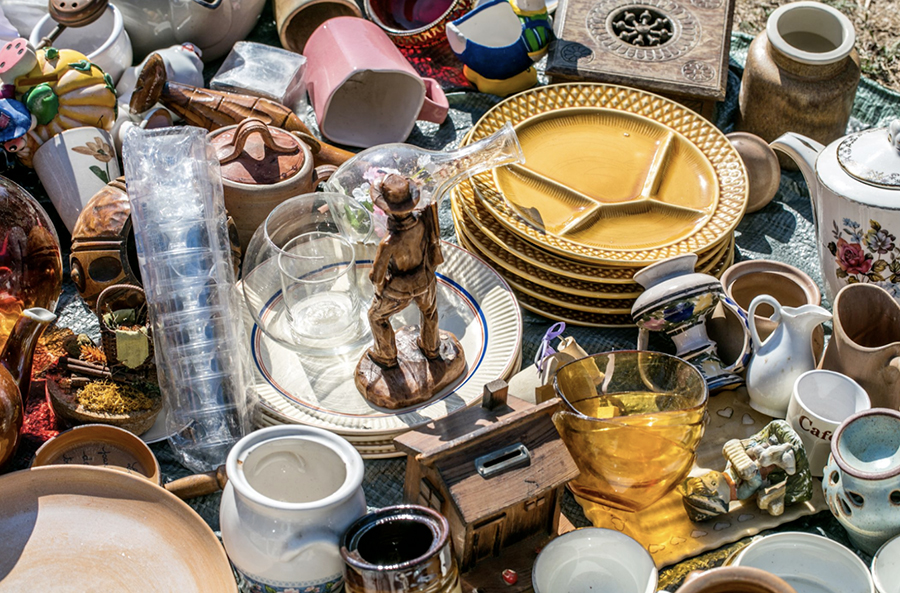Unsolicited Advice
And In the End… Part 1

Let’s get morbid together, shall we? Hopefully this is not the first you are hearing about this, but: one day you will die. Actuarily speaking, that “one day” might be decades away. It also might be tomorrow, with a statistical likelihood best characterized as a “strong non-zero.”
When we die, we leave behind both a literal and figurative house to clean. In the next two columns, I will talk about both of those storage sites—the actual and the metaphorical. None of this will be new or groundbreaking; it is solely meant as a goose to keep all of us focused.
Today we’ll start with the literal.
I’m sorry to say I’ve lost my fair share of close folks, family and otherwise. Among the host of adjustments after the loss of a loved one, there is the actual matter of cleaning out the person’s home. I’ve had to do this several times now.
I say “had to” because even in the best and most nostalgically rewarding of circumstances, it’s heavy, man. You’re digging around in the private corners of a loved one’s lived existence. The emotional finality of the chore is never more real than during this task. And the sheer amount of discardable stuff we amass in the course of a life well lived is literally “heavy.” Trinkets, bills, clothes, medications, stationery items. Mountains of stuff, even in the valley-est of homes.
If you’ve ever cleaned out the home of someone you love, you know that it’s mostly a dump run. The only items you’ve cared about in the end were those that preserve memories or represent the person you lost. Photos, letters, evidence of a hobby or time period. Souvenirs from other lost souls or bygone eras. You’ll keep that stuff. The rest goes practically from the drawer to the garbage bag.
Guess what? It’s going to be the same way when you die. All that stuff you keep around because it will mean something some day? It’s a living monument to our impermanence and unimportance. It’s just an extra day of our kids cursing our chaos later on.
Pictures, souvenirs, items you’ve kept from your kids’ childhoods, evidence of your trips or projects or experiences together? The couple of boxes of stuff that serves as a living reservoir of your most nourishing memories? Gold. Those couple of boxes are our entire material legacy. Find them, keep them, label them, and make them easy to find if your “one day” is tomorrow. View the rest through the lens of someone else’s future slog amid the fog of loss and longing.
This is not a Mari Kondo manifesto. Hoarders gonna hoard. It is meant to talk you down from the practical delusion that any of that other shit matters at all, now or later.
A few times a year I have to have a pep talk with myself and ask what chores I’d be leaving for my kids if I died tomorrow. After that pep talk I end up taking literally boxes of old bills and papers to the shredder. Old t-shirts, all the “let me hang onto that just in case” stuff, buh-bye. I always walk lighter and feel cleaner when that stuff is gone. I’ve never once missed or needed any of it later on.
But, more important, it’s comforting in those moments to have a conversation with my kids’ future selves at a time when they will be most feeling my absence. It’s generational time travel.
I mean, don’t get me wrong. There’s still plenty of nonsense everywhere I look in my pad. But losing some of it, sometimes, feels like going on a mental diet: there’s always further to go, but the act itself is the reward.
So, look around your place. Time travel to a day shortly after (spoiler alert) you die. Ask what is going from your counters or cabinets or closets right to the landfill. Then save your children or loved ones the indignity of disposing of you so brutally. Fill their “chore” with rewards and conversations between them and the still-living version of you. Removing these little bits of “death in life”—the still-life space-suck of mortal marginalia–will give you extra life twice: after you die and every day between now and then.
We are made only of memories in the end. Don’t coat those mental murals with layers and layers of existential wood paneling.
Next month: Cleaning Your Metaphorical House.
Is there something I should offer unsolicited advice about in future columns? Shoot me a line via the contact form at joshweinstein.com and let me know.










